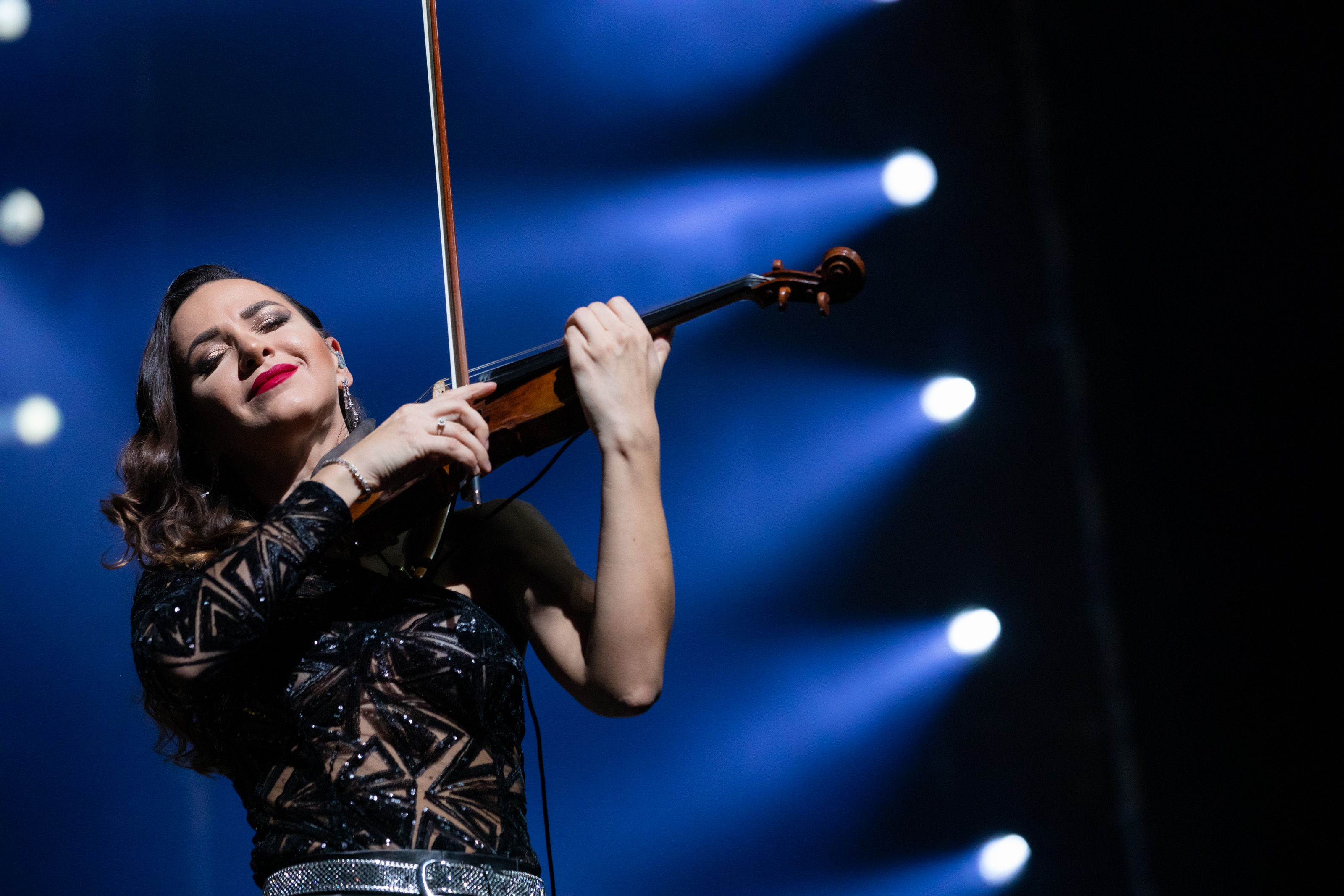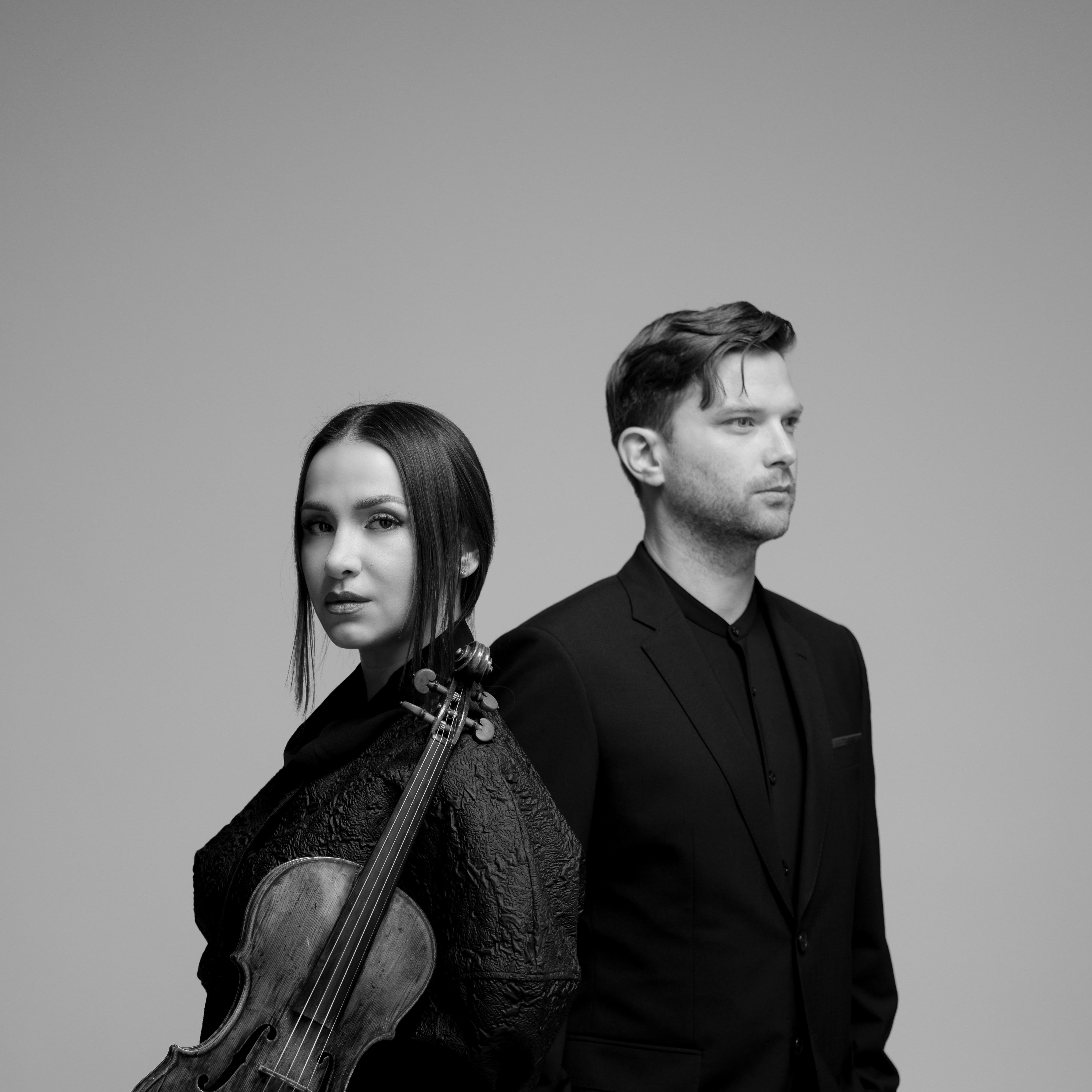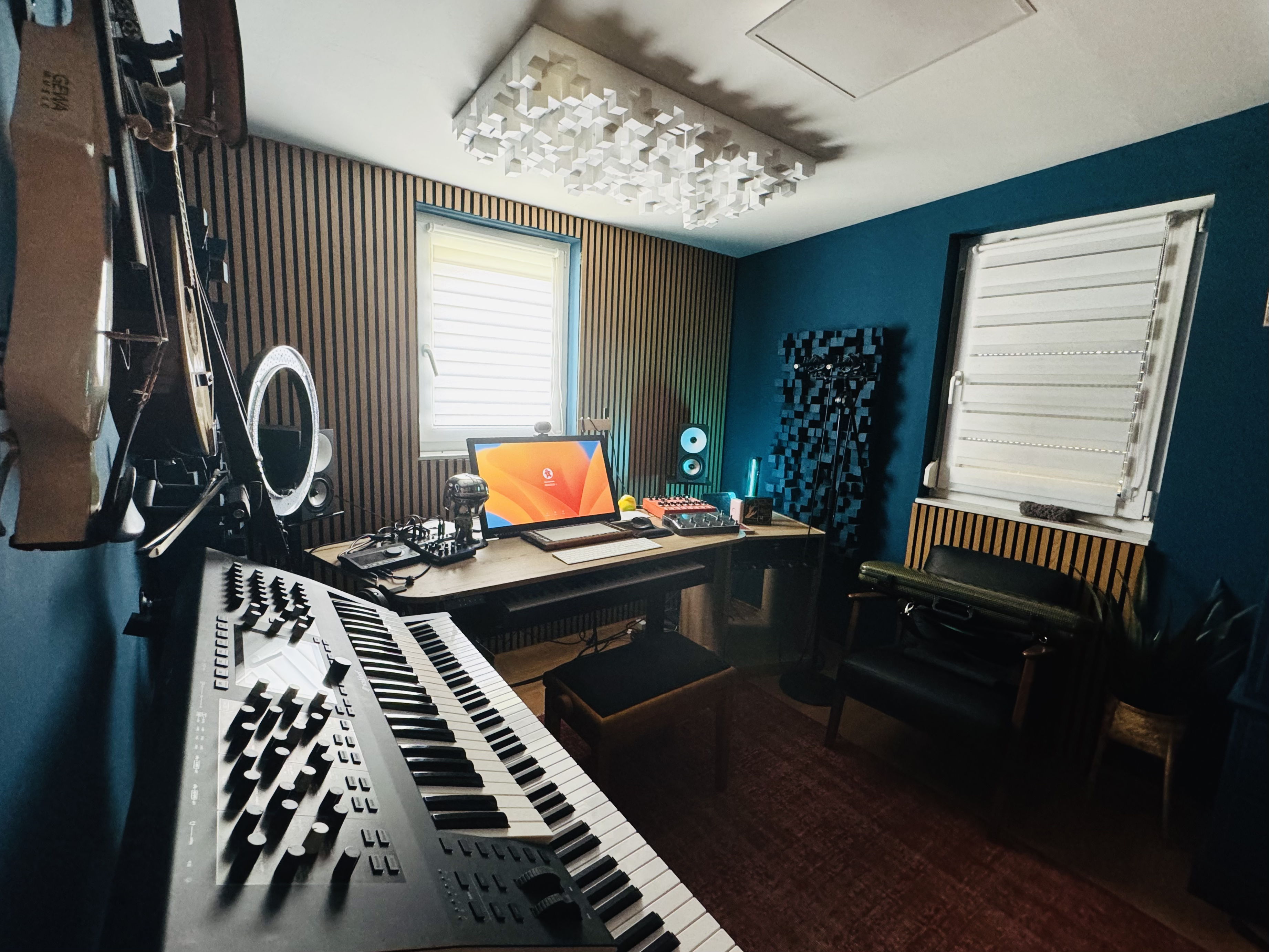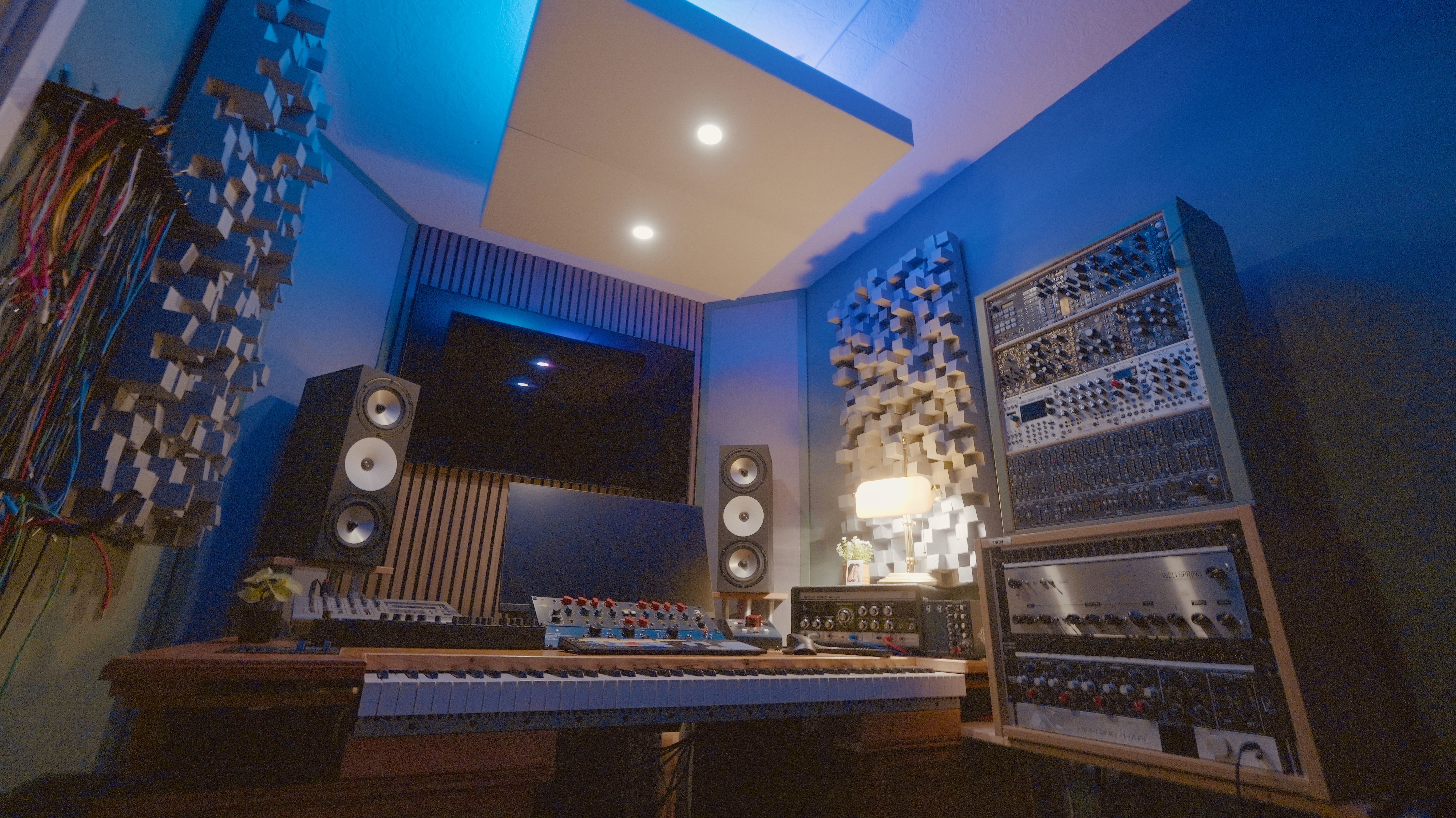How Amphion Monitors Helped Rusanda Panfili Find a Balance of Sound, Frequencies and Dynamics
The award-winning solo violinist in Hans Zimmer’s touring production sharpened her skillset as an audio engineer during the 2020 hiatus
Vienna, Austria, May 23, 2024 — Award-winning classical violinist Rusanda Panfili learned some new skills during the pandemic, adding audio engineering and music mixing to a list of talents that already included composing, arranging and producing. Panfili, born in Moldova, raised in Romania and now living in Austria, has been a soloist on the Hans Zimmer Live touring production. As well as on the orchestral recreations of the Oscar-winning composer’s music, The World of Hans Zimmer, for nine years. Her violin playing can be heard on Zimmer’s film scores for Boss Baby 2, Army of Thieves and Wonder Woman 1984. She also releases projects under her own name, as a violinist and as a synthesizer player, and leads her own world music ensemble, which also works with Zimmer. She is a featured soloist on renowned tenor Andrea Bocelli’s 2024 European and U.S. arena tours. But after being forced off the road by the coronavirus in 2020, Panfili began working on remote recording sessions via her laptop, eventually leading to assembling a well-equipped home studio that hinges on a pair of Amphion One18 reference monitors.
The Importance of Good Speakers
Early in the pandemic, unable to work with a large orchestra because of the coronavirus threat, Zimmer contacted Panfili and asked her to record her band and send him tracks for a film score that he was working on. “I thought, how am I going to do that? But of course, I said, ‘Sure, no problem!’” she says. “I needed a few days to get my hands on a few microphones and an interface, and I recorded everything into GarageBand on my MacBook. Hans said, ‘I don't care how you record it, just be creative.’ When he heard it, he said, ‘This is nicely mixed,” and everybody told me, ‘You've got a good ear,’ so that encouraged me to continue.”
It wasn’t until she met Johannes Winkler, a sound engineer, composer, producer and her future husband, that Panfili realized just how good her mixes could sound. “I went to his studio and listened to music on his Amphions. He has the Two18s with the FlexBase25 bass extension system. I realized how important listening on good speakers is. There was a quality and transparency,” she says. On her speakers, or in headphones, she says, “It never really felt like I was listening to something real; it felt produced or colored. But when I listened on the Amphions it sounded so real, so transparent, so accurate. I didn’t have a studio yet, but from that moment I knew that one day I would have my own Amphions.”

A Room of Her Own
When the couple moved to a three-story house located outside of Vienna and set up their respective studios, hers on the top floor, her husbands on the ground floor, Panfili had not yet upgraded her speakers. “I was so unhappy with the speakers that I had. I was constantly going to my husband’s studio, and the mixes that I was doing in my studio were just so terrible, so I said, ‘It's time.’ And now I'm so happy, because in my room the One15s are absolutely ideal. Even my husband comes to listen to his mixes in my room!”
For an independent, self-produced and self-financed artist, creating a home studio capable of delivering high quality recordings makes economic sense, Panfili continues. “Honestly, it's a lot to invest in a studio, but it's much more to invest in getting other people to help you. If you can do it yourself, you're saving a lot of money. And that investment has been really necessary in order to be able to deliver the highest quality of a mix. I am at a point where I can deliver really good quality from my home studio, where I never have to go and rent a space for myself, unless I’m recording a bigger group. So, I have found myself working for the past two years only from home.”

Learning how to record herself and other musicians has been a revelation. “I started composing, I started doing things that I never did before,” she says. Plus, as the global pandemic demonstrated, a touring musician’s source of income can disappear overnight. “So I think it's great to develop new skills. I also feel that developing these engineering skills has helped me become a better musician. When I'm preparing for a performance, I can create a backing track that I can practice with or record myself and listen to my playing. It's a very different way of approaching being not only a performer, but a musician in general.”
Using her new skills, Panfili continues, she produced an experimental album, mixed in Dolby Atmos, during the pandemic. “I really wanted to explore different worlds of sound, so I got a lot of synthesizers and created music with different instruments that are not necessarily in my comfort zone. It has a lot of sound design, and some pieces are up to 130 tracks — I went really crazy!”

Living in the Recording Studio
GarageBand was fine when she was just getting started, she says, but to overcome its editing limitations she soon switched to Apple Logic. “Then I started working with Cubase, not just because Hans and his entire team works with Cubase, but also my husband works with Cubase, so it was really easy to send sessions to one another. When we are mixing in Dolby Atmos, for binaural or with head-tracking technology, we mix in Logic.”
She attributes her talent for mixing to her many years playing the violin, which she picked up at age six. “I've been playing all these super expensive violins ever since I was really young,” says Panfili, who currently plays a rare violin crafted by Italian luthier Giovanni Paolo Maggini in 1610. “Each instrument is so different, so you learn how to extract sounds. Whenever we play together, we must take care about the sound, about balance, about what the audience is going to hear. I think that taught me a lot about sound balance, frequencies and dynamics without even being aware that this might be something that I could apply to mixing, engineering and producing. Sound has always been something that I'm very particular about.”
With both Panfili and her husband working all hours and sending tracks to collaborators around the world, “The whole house is recording studio. The goal now is to get a bigger house and a bigger studio. Our life revolves around music and making music, and I’m grateful to have that kind of home life. I love making music.”

To learn more about Amphion Loudspeakers, please visit https://amphion.fi/.
About Amphion
Amphion Loudspeakers Ltd. was established in 1998. We design and build loudspeakers that are characterized by honest and accurate sound reproduction. Precise driver integration ensures world-class imaging and phase coherency. Controlled dispersion technology helps achieve more stable results in a variety of room acoustics. All products are handmade in Finland (and the Amphion amplifiers are assembled in Finland) to ensure enduring listening quality.
.JPG)



.JPG)





